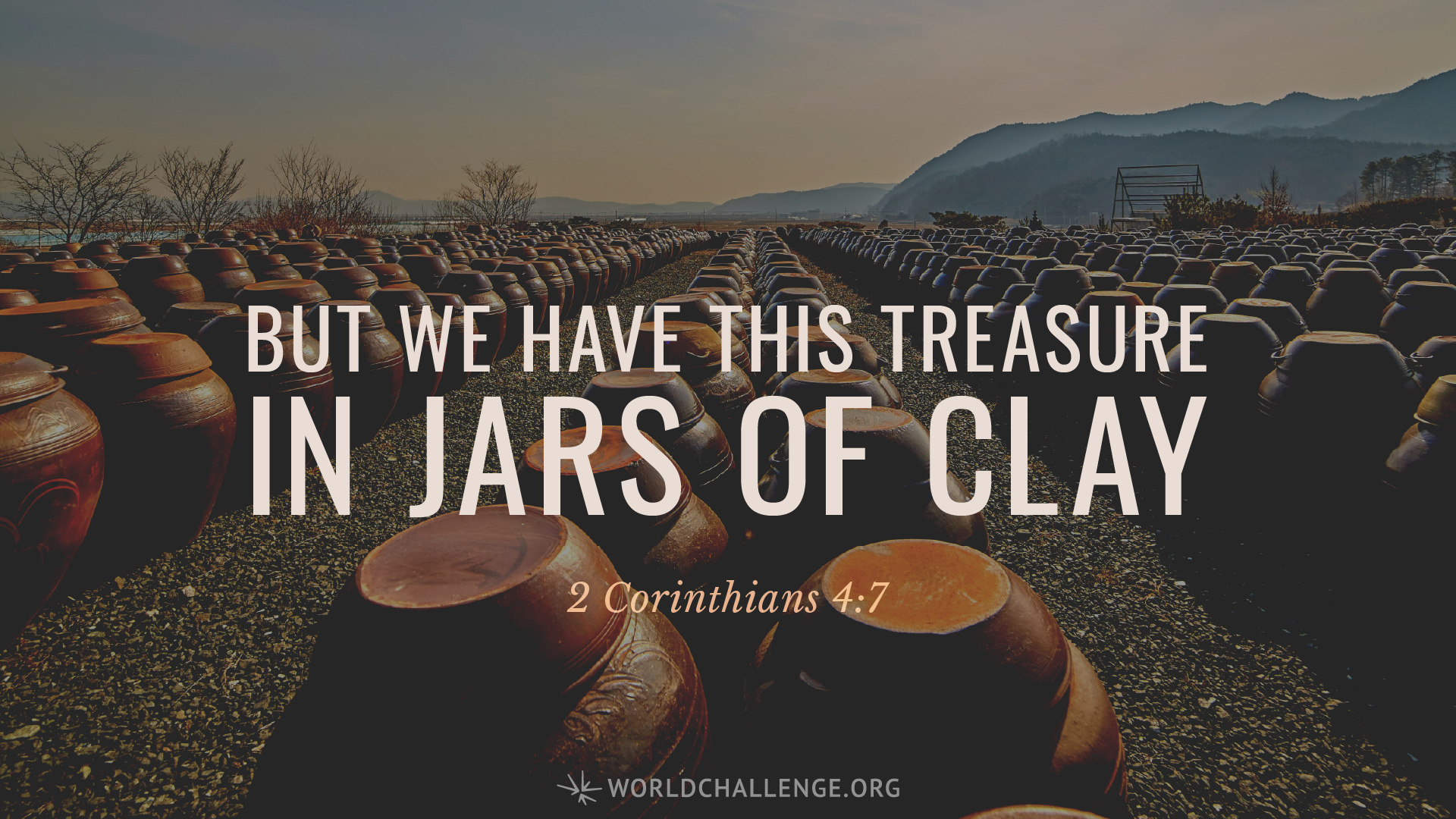2 Corinthians 4:7
But we have this treasure in jars of clay, to show that the surpassing power belongs to God and not to us.
Devotional Thoughts
By David Wilkerson
God has determined to accomplish his goals here on earth through mere men. One of the most encouraging scriptures in the Bible is 2 Corinthians 4:7: “But we have this treasure in earthen vessels, that the excellence of the power may be of God and not of us.” Then Paul goes on to describe those earthen vessels — dying men, troubled on every side, perplexed, persecuted, cast down.
God never uses the high and mighty but, instead, he uses the weak things of this world to confound the wise. “For you see your calling, brethren, that not many wise according to the flesh, not many mighty, not many noble, are called. But God has chosen the foolish things of the world to put to shame the wise, and God has chosen the weak things of the world to put to shame the things which are mighty … that no flesh should glory in His presence” (1 Corinthians 1:26-29).
The weakness God speaks about is our human inability to obey his commandments in our own strength. The Word records a long list of men who loved God and were greatly used by him, but were almost driven to the ground by their weaknesses:
-
Isaiah, the great prayer warrior, was a man just like the rest of us, weak and wounded.
-
David, the man after God’s own heart, was a murdering adulterer who had no moral right to any of God’s blessings.
-
Peter denied the very Lord God of heaven — cursing the One who loved him most.
-
Abraham, the father of nations, lived a lie, using his wife as a pawn to save his own skin.
-
Joseph taunted his lost brothers in immature glee — until it almost backfired on him.
Have you failed? Let your heart accept all the promises of victory in Jesus. Then let your faith tell your heart, “I may not be what I want to be yet, but God is at work in me and I will come forth as pure gold. I commit everything to him who is able to keep me from falling and present me faultless before the throne of God — with exceeding great joy!”
